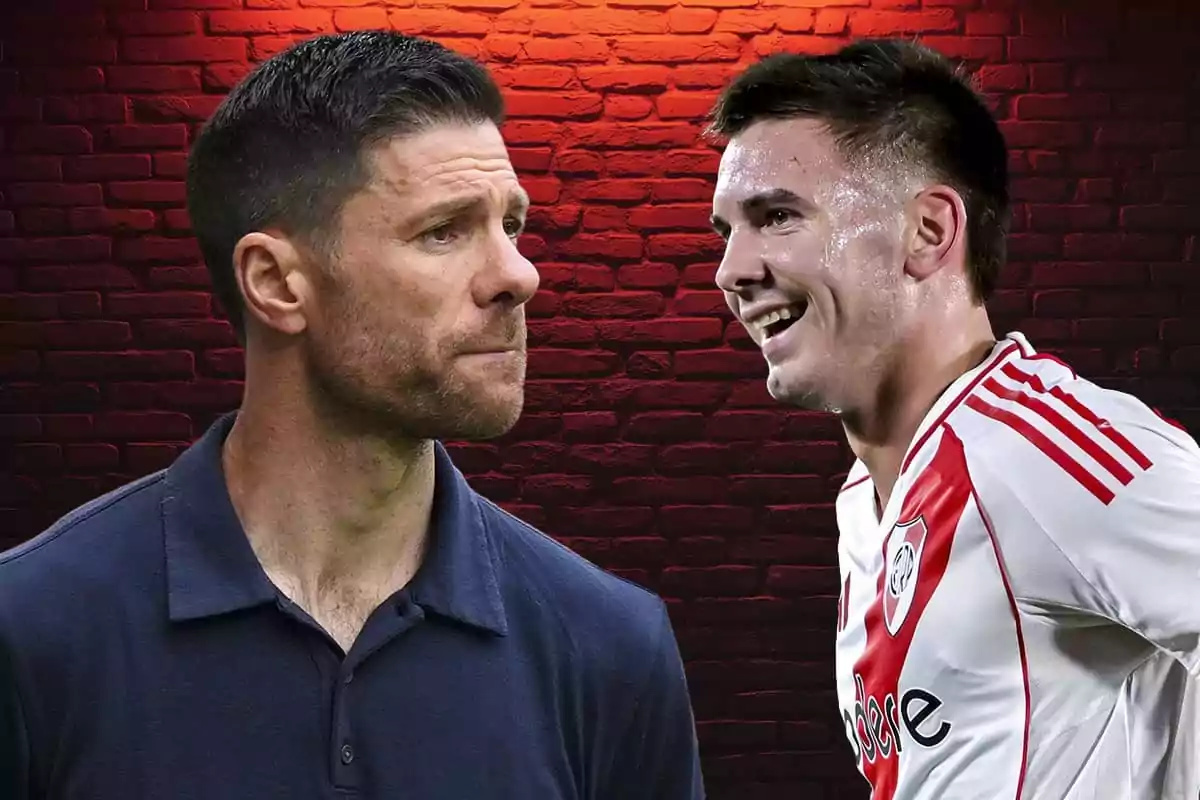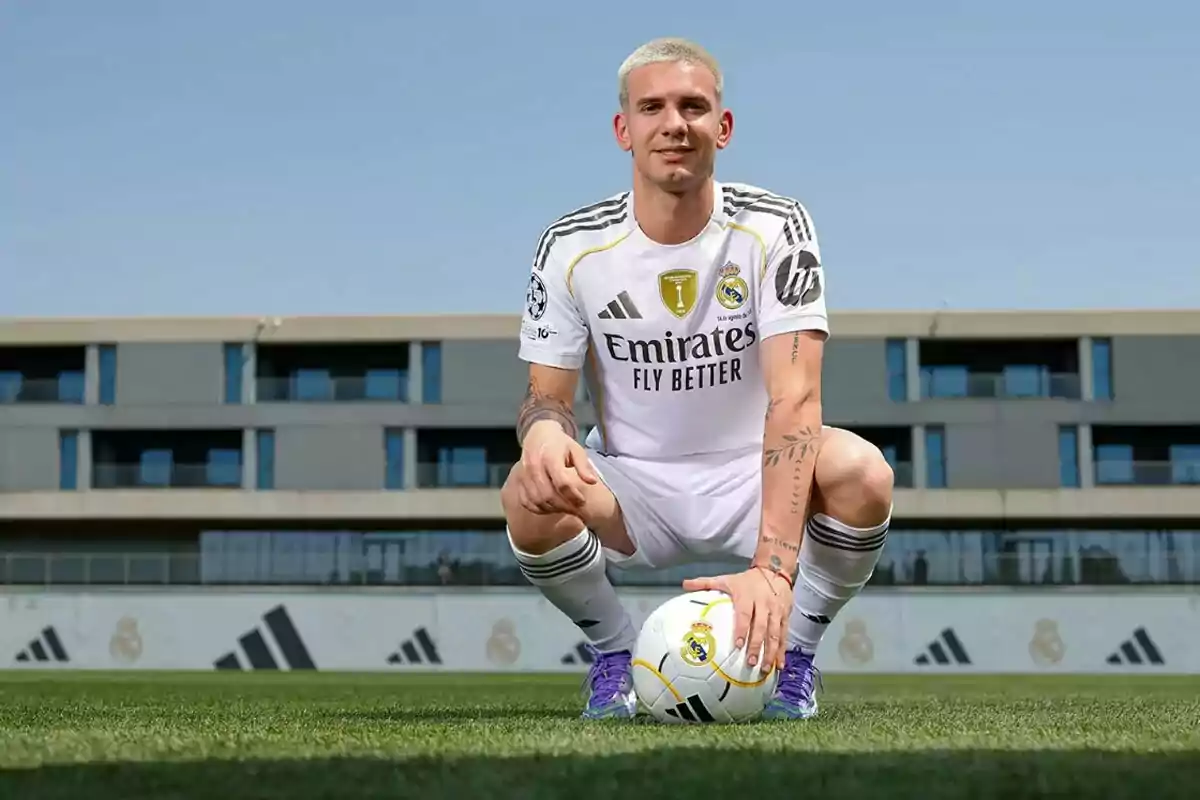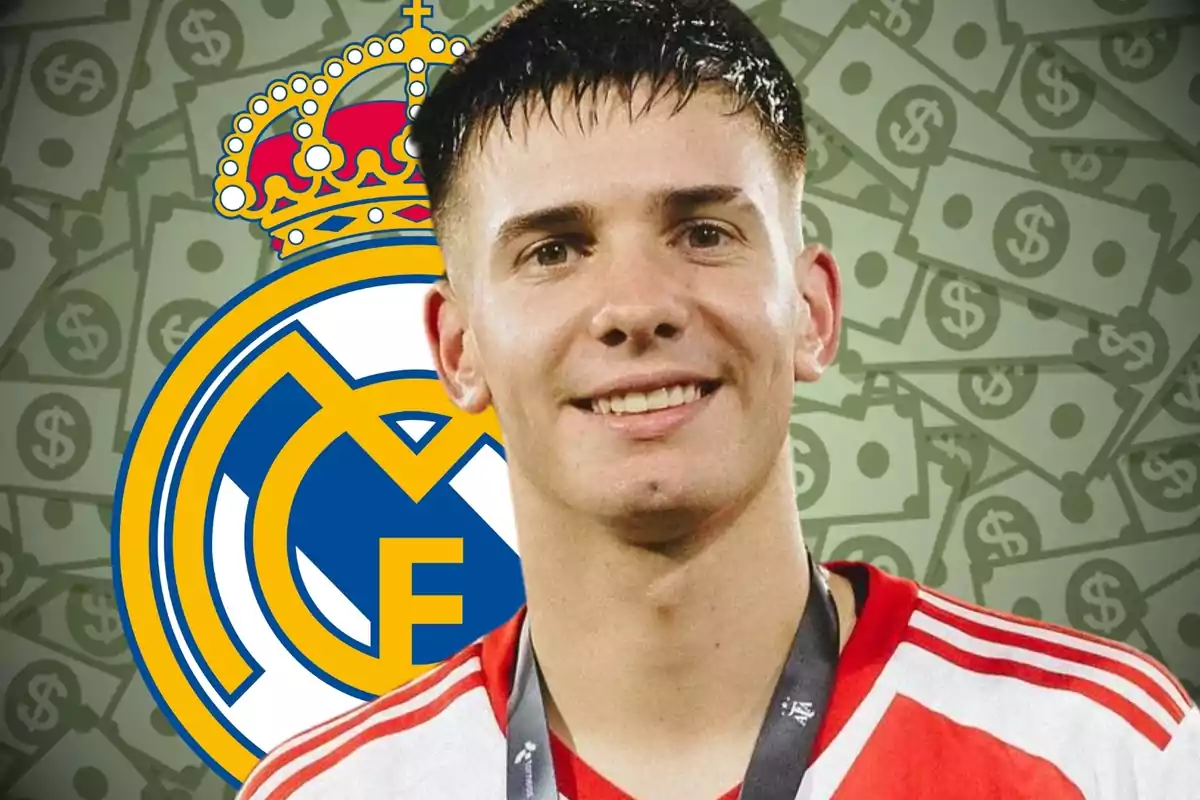Franco Mastantuono's arrival at Real Madrid is shaping up as a story of hope and controversy. While the club sparks hope among its fans with a gem who's only 18 years old, in Argentina, they haven't hesitated to question the decision.
Journalist Hernán Pereyra, on ESPN, has been especially harsh: "He rushed his departure from River to come to Europe. He wasn't ready, he's very green."
The statement has sparked debate on social media. Pereyra ironically wondered what Mastantuono left at River, and he answered himself:
"Two things: a stunning goal against Boca from a free kick and 50 million dollars." It's a criticism that combines sarcasm with both football and emotional reproach, especially because of how soon the transfer happened.

A hasty departure according to River
It's not just journalists who have opinions. Marcelo Gallardo, River Plate's coach, regretted the young player's early departure: "The move was premature... he was part of the team's development."
Gallardo emphasized the need to establish himself in South America before making the leap, but he acknowledges the inescapable logic of modern business.
Meanwhile, from Real Madrid, they defend the decision. Xabi Alonso sees Mastantuono as a player with maturity and attitude.
During his presentation, the coach praised his composure and confidence: "He has quality, personality... he'll reach the locker room quickly."
Between praise and warnings
The coach himself has softened the debate with praise for his admiration for Messi: "It's logical that his idol is Messi. He's Argentine and left-footed, it doesn't surprise me." But the warnings persist.
The Madridist environment appeals to time as the solution: there's talent, but the adaptation process also matters.
Precocity has been Franco's hallmark since his youth. He was the youngest debutant to score in Copa Libertadores, Superclásico, and the official Argentina National Team. However, the leap to Real Madrid is another dimension, where the spotlight is more intense.

A risky bet that holds reward
The player's transfer—around 45 million euros ($48.6 million) for a six-year contract—follows the modern formula: expensive but generational signing. If Alonso knows how to manage his development, the club could be facing the next great Argentine number ten, but also with risk.
The "green" player narrative contrasts with another discourse: that of a young man who takes on the challenge without fear. If he manages to adapt, Argentine criticism will lose strength. If not, it'll be seen as a bad, premature decision.

